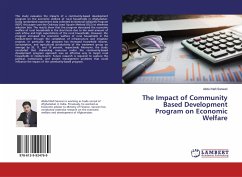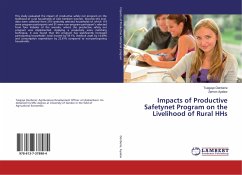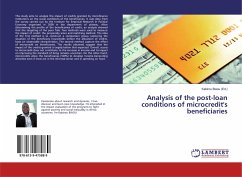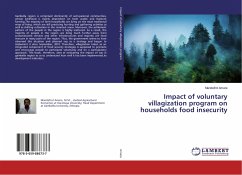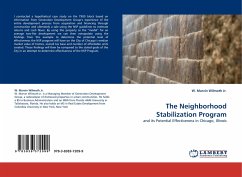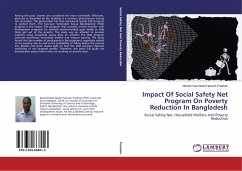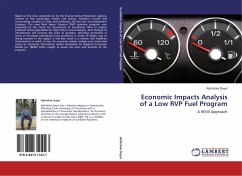This study evaluates the impacts of a community-based development program on the economic welfare of rural households in Afghanistan. Using randomized experiment data collected by National Solidarity Program (NSP), this paper uses the Ordinary Least Square Method (OLS) to eliminate selection bias. The results show that the program decreased the economic welfare of rural households in the short-term due to the small amount of cash inflow and high expectations of the rural households. However, the program increased the economic welfare of rural households in the medium-term through the completion of infrastructure and irrigation projects. In particular, the program has increased household income, consumption, and agricultural productivity of the treatment group on average by 20, 11, and 19 percent, respectively. Moreover, the study concluded that channeling resources under the community-based development program approach was an effective way to target rural households in medium-term. Future research is required to capture the political, institutional, and project management problems that could influence the impact of the community-based program.
Bitte wählen Sie Ihr Anliegen aus.
Rechnungen
Retourenschein anfordern
Bestellstatus
Storno

